A startup from China is all set to reveal its augmented reality glasses – and take a shot at the big break that’ll help it expand to the US.
Rokid Glass, to be shown at CES 2018 next month in Las Vegas, is the team’s first wearable gadget after years of making gizmos for the home. Here’s a prototype:
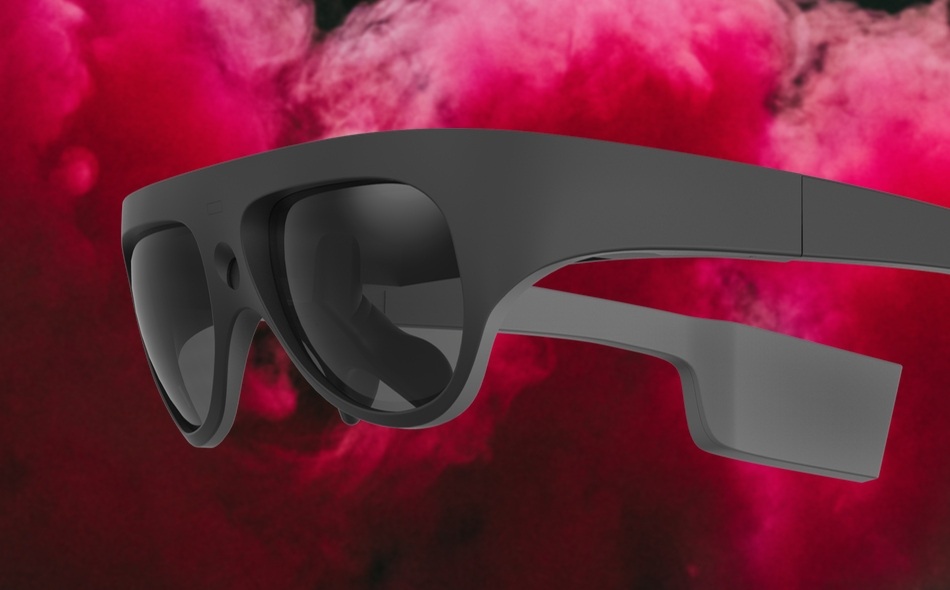
Photo montage by Tech in Asia, using image from Rokid
Reynold Wu, product director at Rokid and the man charged with bringing the AR glasses to market, was an early adopter and big fan of Google Glass, the much-mocked headset that never really caught on. He feels that both technology and consumers have moved on a lot since Google’s effort was first made public in mid-2012.
“The battery… The components… The camera is much smaller,” says Wu, and these fast-moving changes should help the startup’s product be sleeker and funkier. “I can’t say it’s perfect timing, but it’s better timing now,” he tells Tech in Asia.
Also on Wu’s side is the fact that people are showing a decent amount of enthusiasm for AR right now, which can do a lot of useful and fun things. The success of Pokemon Go proves that beyond doubt.
However, that’s all happening on the phones that people already own, like this IKEA app for seeing how new furniture will look in your home.
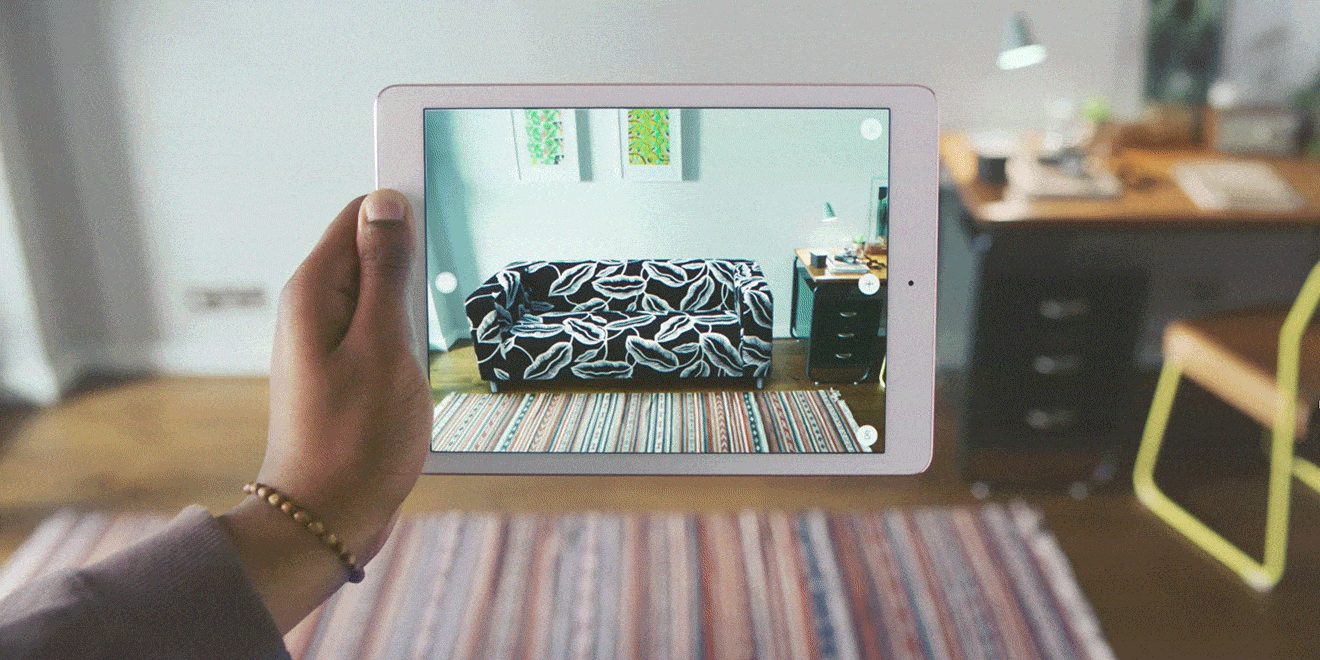
GIF credit: Adweek
Getting people to fork out for a new gadget devoted entirely to AR will still be a big ask.
Rokid Glass takes voice inputs as well as heeds commands users make with their hands. It also has a touchpad, in case people feel more comfortable using that.
Between the eyes you’ll notice there’s a camera. The lenses are also OLED screens
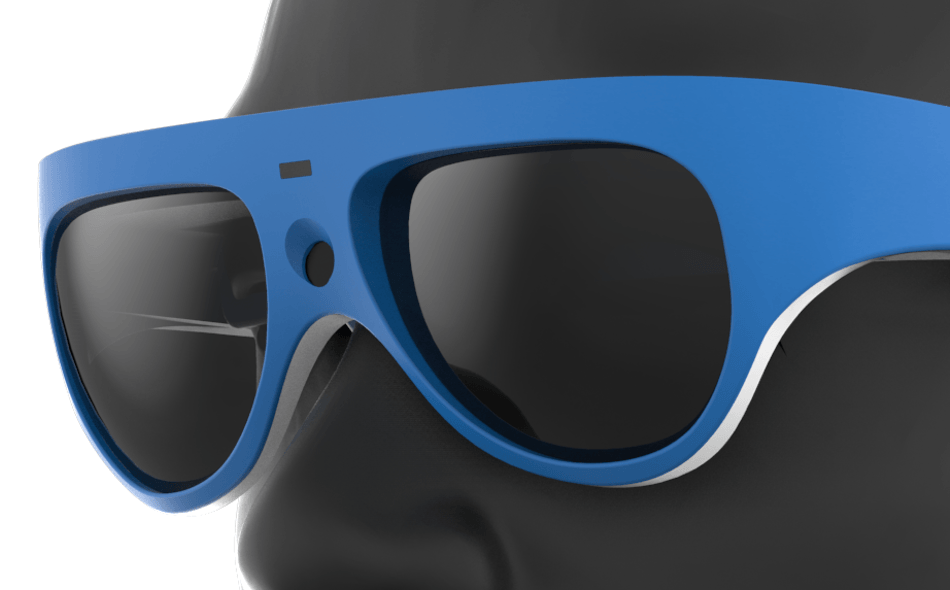
Photo credit: Rokid
The wearable gadget will run a version of Android, making it open to apps. Wu sees Glass being suited to navigation and product recognition apps in particular.
“A lot of apps are too distracting,” he observes, thinking of how they’ll appear before your eyes in AR. He also wants to ensure its users stay safe as they walk along the street. And so Rokid will initially focus on getting useful apps onto Glass, though they’ll show off the gadget to CES 2018 visitors with a game controllable with gestures.
“We want to give you glasses that improve your life, not make you think you’re in a virtual world,” says the mechanical and electrical engineer.
Adding lightness
A big objective is to ensure that Rokid Glass is “light and fashionable,” adds Wu.
He points to Snapchat’s Spectacles – which were basically just a glorified webcam – as proof that crucial components have now shrunk down enough to allow firms to make more stylish wearables.
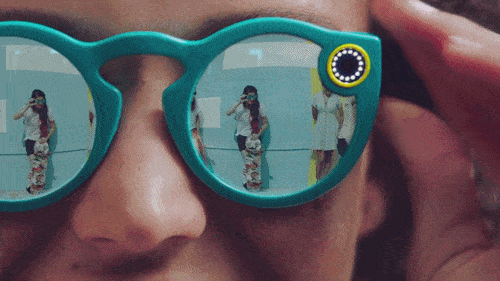
GIF credit: Snapchat
And so Rokid Glass will be as slim as possible, avoiding the awkwardness of Magic Leap’s AR headset, which was shown off just before Christmas.
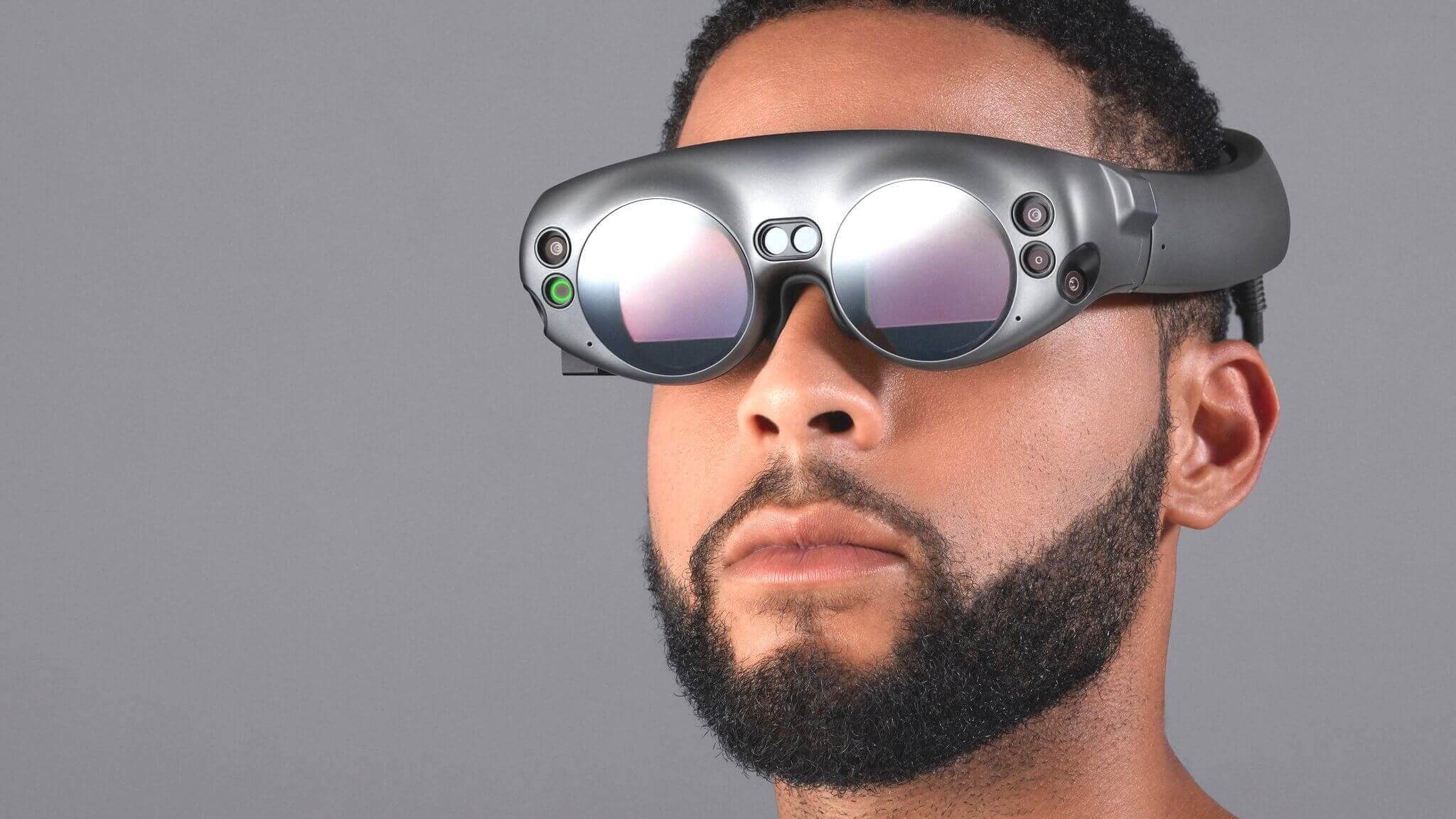
Photo credit: Magic Leap
There’s also the 900-pound gorilla in the room: Apple. The iPhone maker is rumored to be looking into AR glasses as its next wearable niche after pushing AR hard with its latest iPhones. However, Apple CEO Tim Cook in October said that at present, “the technology itself doesn’t exist to do that in a quality way.” He added: “We don’t give a rats about being first, we want to be best in creating people’s experiences. Something that you would see out in the market any time soon would not be something that any of us would be satisfied with.”
Established in 2014, Rokid makes the AI that goes with its gadgets, such as its Pebble smart speakers, which come with a voice assistant. That AI assistant is now busy learning English, as the startup aims first at the US with its AR glasses. There’s no set price or launch date yet, but it’s looking towards sales later in 2018.
During its CES debut, the startup intends to meet with potential customers as well as get feedback on Glass.
CES 2018 opens January 9.
This post Chinese startup beats Apple to the punch with its AR glasses appeared first on Tech in Asia.
from Tech in Asia https://www.techinasia.com/chinese-startup-shows-off-rokid-glass-ar-glasses
via IFTTT
No comments:
Post a Comment